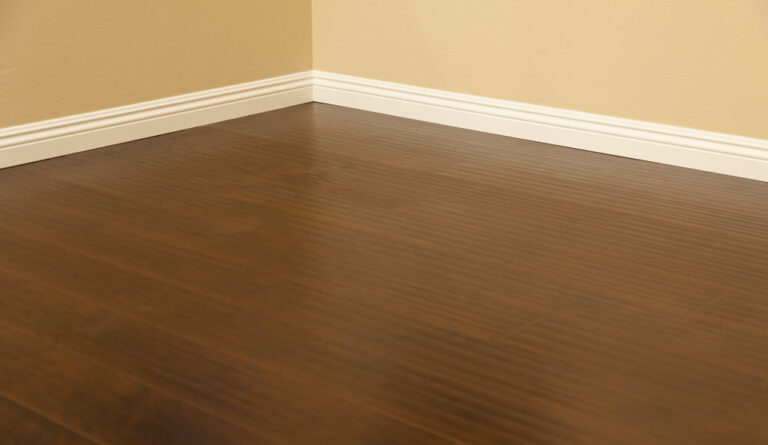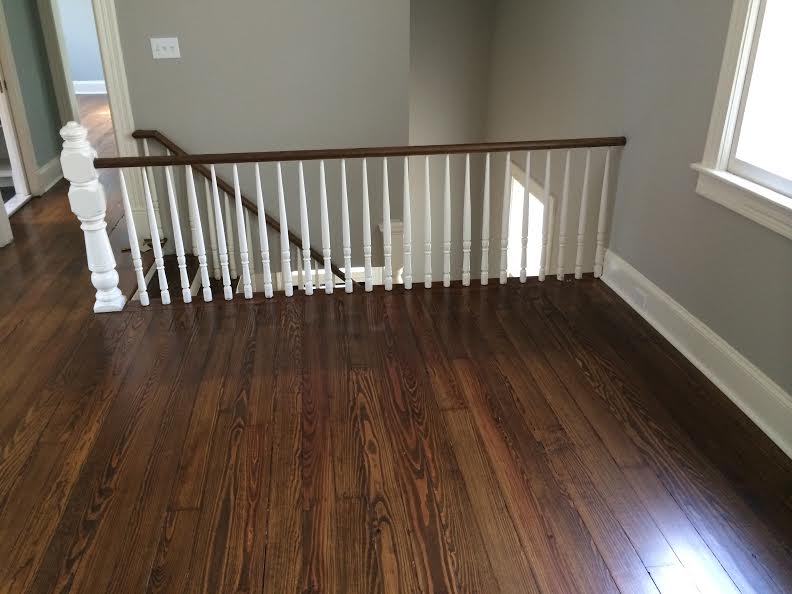Ever noticed how your hardwood floors seem to amplify the slightest movement during the winter months? A soft creak here, a subtle groan there – it’s enough to make you wonder if your house is haunted. While the phenomenon might seem spooky, it’s actually a common occurrence with a scientific explanation. The change in temperature, particularly in the winter, plays a significant role in how hardwood floors behave, leading to a noticeable increase in creaking.

Image: floorswork.com
Hardwood floors, known for their elegance and durability, are also susceptible to changes in moisture levels. This is where the winter chill comes into play. As the temperature drops outside, the air inside your home can become drier, leading to a decrease in humidity. This dryness can affect the moisture content of the wood, causing it to contract. This contraction is often uneven across the floorboards, leading to stresses on the wood and the connecting joints, which are the culprits behind those annoying creaks.
Understanding the Science Behind the Creaks
To grasp why winter intensifies creaking, we need to explore the basic principles of wood expansion and contraction. Hardwood, like any natural material, is susceptible to changes in its physical dimensions due to variations in temperature and humidity. In simple terms, as the temperature drops and the air becomes drier, hardwood tends to shrink. This process, known as “drying,” is exacerbated by the winter’s low humidity levels. The shrinking wood becomes tighter, putting pressure on the joints between the floorboards and ultimately leading to those familiar creaks.
Factors Influencing Winter Creaks
Not all homes experience the same degree of creaking in the winter. Several factors contribute to the intensity of creaks, including:
- Wood Species: Certain hardwood species, such as oak, are known to expand and contract more than others, like maple. This inherent characteristic can influence the severity of creaking.
- Floor Installation: The method used to install the hardwood can significantly affect its responsiveness to temperature changes. Floors that are nailed or glued down tend to be less susceptible to movement, while floating floors, which are not directly attached to the subfloor, are more prone to creaking.
- Age of the Floor: Older floors have experienced repeated cycles of expansion and contraction, potentially leading to looser joints and increased creaking. New floors, however, are typically tighter and less likely to produce noises.
- Climate: The geographical location and the severity of the winter season are crucial factors. Regions with colder temperatures and lower humidity will likely experience more noticeable creaking compared to milder climates.
What Can You Do? Tips to Minimize Creaks
While winter creaking might be unavoidable, there are several practical steps you can take to minimize the noise and enjoy a more peaceful home. Don’t worry, most of these solutions involve simple adjustments and a bit of hands-on work:

Image: elisdecor.com
1. Increase Humidity Levels
One of the most effective ways to counter winter’s drying effects is to increase the humidity levels in your home. This can be achieved through various methods:
- Humidifiers: Consider using a humidifier to add moisture to the air, especially during winter months. Room-based humidifiers are a convenient option, while whole-house humidifiers can offer more comprehensive coverage.
- Indoor Plants: Plants naturally transpire water, contributing to indoor humidity. Incorporating plants into your home decor can help maintain a healthier humidity level.
- Air-drying Clothes: Air-drying laundry indoors can release moisture into the air, particularly in winter when clothes take longer to dry.
2. Tighten Loose Floorboards
Loose floorboards are the primary culprits behind creaking. Addressing these loose joints can effectively reduce the noise. You can use a hammer and nails or screws to secure the floorboards to the subfloor, ensuring a tighter fit and less movement.
3. Apply Wood Floor Polishes
Some wood floor polishes contain a blend of oils and waxes that can create a more durable surface, potentially reducing friction between the floorboards and lessening the intensity of creaks.
4. Consider Professional Help
For more significant creaking or if you’re not confident tackling the repairs yourself, seeking professional help from a flooring contractor can be the best course of action. They have the expertise to diagnose the issue and employ appropriate solutions to minimize creaking.
Do Hardwood Floors Creak More In The Winter
Embracing the Quirks of Hardwood Floors
While creaking can be a minor annoyance, it’s important to remember that hardwood floors are a natural material with unique characteristics. Embrace their idiosyncrasies, including the occasional creak, as part of their charm. Remember that these slight imperfections can add character and warmth to your home. Ultimately, your focus should be on minimizing the noise to a tolerable level and enjoying the beauty and durability of your hardwood floors.
The next time you hear a creak in your hardwood floors during winter, don’t fret! You now have a better understanding of the science behind the sound and practical tips to address it. By following these suggestions and making smart choices for your home’s environment, you can minimize creaking and maintain a cozy and comfortable living space throughout the winter months.



/GettyImages-173599369-58ad68f83df78c345b829dfc.jpg?w=740&resize=740,414&ssl=1)


